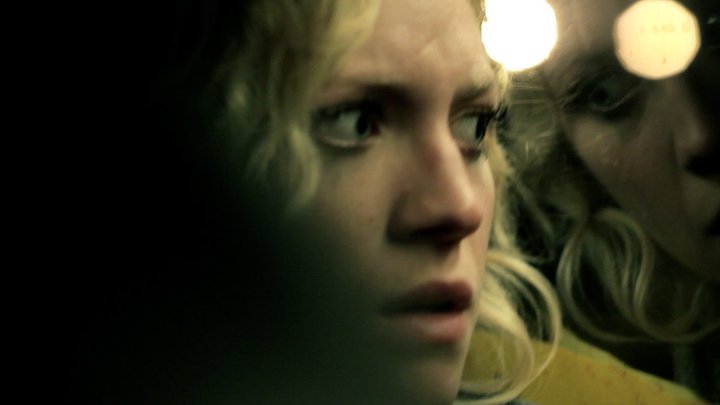Mouthpiece: Half-Formed, by David Bax

This review originally as part of our TIFF 2018 coverage.
Even if you didn’t know going in that Patricia Rozema’s Mouthpiece is an adaptation of a play (by writers/stars Amy Nostbakken and Norah Sadava), it wouldn’t take you long to guess as much. Characters here don’t talk; they opine, reflect and declare like only characters in the most self-conscious theater pieces do.
Nostbakken and Sadava play sisters, so in sync that they share one bicycle and sleep in the same bed. Only a few minutes into Mouthpiece, they learn that their mother has suddenly died. The rest of the film is occupied with them preparing for the funeral and trying to compose a fitting eulogy for a woman about whom they have very complicated feelings.
There’s something else going on in Mouthpiece that I’m not telling you, though, because Rozema (whose most recent feature was 2015’s thorny and well-observed Into the Forest) would prefer you figure it out at your own pace. It will have to suffice for me to say that the movie’s clever conceit is not nearly as clever as it thinks it is. Mouthpiece is even more exhausting when you add in its structure, where “what happened at Christmas” is constantly evoked by present day characters while we wait for the flashbacks to catch up and reveal what they’re talking about.
It’s a shame, really, because that scene, when we finally reach it, is among the film’s strongest. Nostbakken and Sadava bring some compelling observations about the way that modern day feminists and other progressives reckon with the more traditional figures that, in this case literally, gave birth to them. When Nostbakken’s character accuses the mother (Maev Beaty) of having wasted her whole life, it’s easy to see why she feels that way; yet how can it be true if that life made the accuser’s possible? Beaty’s performance is a good one but, unfortunately, the screenplay allows her to reveal far less about the mother than what the sisters project onto her.
Not having seen the original stage production, I can only speculate about what Rozema brought to her adaptation. But the film’s most intriguing ideas are purely visual ones. In shot after shot, we notice billboards and other advertisements in the background, highlighting the ways we are both terrified and fascinated by the specter of female aging and death. Like the ideal version of their mother these sisters carry in their heads, there’s a better version of Mouthpiece that was never uncovered.






























